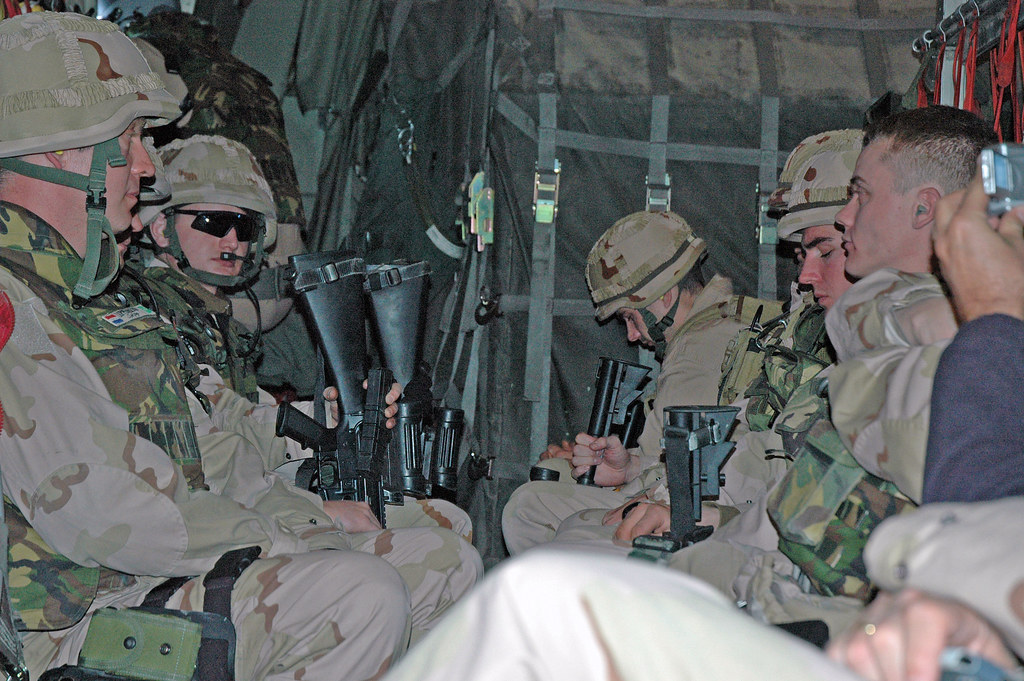[dropcap style=’box’]S[/dropcap]ebastian Junger wrote a very compelling book called “War.” It chronicles the combat experiences of an American platoon in Afghanistan. The trust, camaraderie, service and sacrifice these men showed one another was so powerful and extraordinary that the platoon leader extended his combat tour for a second year despite the daily horrors of his first year. When Junger asked him how he could possibly return for more war, the young soldier said that he would not find powerful brotherhood like what he experienced in Afghanistan anywhere else.
I reflect on this often. Christians are decidedly in a spiritual war. Casualties and death surround us every day. We are called to band together in platoons more commonly known as churches. And we are supposed to fight together against a common enemy. However…
Christians are decidedly in a spiritual war. Casualties and death surround us every day. We are called to band together in platoons more commonly known as churches. And we are supposed to fight together against a common enemy.
One of Junger’s most surprising observations after 15 months with the same platoon was how little they actually liked one another. Strangely enough, some guys described how much they hated others on the team. They nagged, criticized, and put each other down in mean-spirited and heart wrenching ways but when bullets started flying (as they did virtually every day), each platoon member had everyone else’s back. Feelings and friendships were a far distant second to “not letting everyone down.”
So why do so many Christian churches in the US struggle to fight a common (and powerful) enemy? Why don’t we observe this brotherhood among the global church. If fellowship and brother/sisterhood is such powerful glue in warfare, why is regular church attendance dropping in a great many churches?

Risking oversimplification, I believe it has much to do with “comfort.” Let’s face it, a great many who call themselves Christian in the U.S. lead remarkably comfortable lives (myself included). Today’s advanced technology gives heightened access to much bad news, but we can always turn it off. Spiritual warfare does not seem to be a daily set of firefights with eternal consequences, but instead a strange concept we agree is biblical but not practical. So we too often just go on living our comfortable lives.
We need to get out of our comfort zones! There are, of course, many ways to do this, but this blog suggests one that is time honored and biblical. Going out for an extended time in the wilderness is a strategy that jars people from comfort or routine into dependence on God. The 40-year desert wandering with God at the lead comes to mind. So does Jesus’s head on collision with Satan after a 40-day fast in the wilderness. If God the Father and God the Son took to the wilderness led by the Spirit, perhaps we should do the same.
Spiritual warfare does not seem to be a daily set of firefights with eternal consequences, but instead a strange concept we agree is biblical but not practical. So we too often just go on living our comfortable lives.
How would a trek into wilderness prepare us for spiritual warfare? Programs like Summit Adventure take participants into the wild where they must work together to successfully negotiate various activities and obstacles inherent in the terrain.
Navigating across high mountains using a map, compass, and GPS unit is one example. It would be quite difficult and perhaps impossible for one person to do this without the help of others similarly trained and focused. Group members don’t need to like one another, but all must hold finding their destination to be paramount. This is just one of many important tasks that require full group cooperation to succeed. And while there are other areas in life that require team cohesion (certain work environments, raising a family, etc.), very few have skilled facilitators to help group members evaluate and improve specific behaviors and dialogues. This is important to optimize team members’ performance and help them transfer what they learned from the wilderness into their comfortable lives back home.

Being uncomfortable in the wilderness, yet successfully achieving certain challenging goals together regardless of how they felt about one another is a major step in becoming soldiers in a spiritual war. It might be nice to have some friends in battle, but it is certainly NOT necessary. What is needed, however, is the strong motivation to “have everyone’s back.”
If we stay comfortable amidst only our friends, it is easy to forget there is even a war going on. We’re happy with our own group. Yet surely God calls us out of our comfort zones to serve and sacrifice for others engaged in pitched battles with the enemy. We can learn from Junger’s soldiers and enter battle with others who we may or may not like and do our best to not let them down.
Think of this: we go into battle together with other like-minded soldiers caring more about serving than friendship, the enemy’s defeat rather than popularity, and the task at hand rather than petty personal agendas. Church would quickly become far more compelling and “other” centered. Isn’t this our great calling from God?

